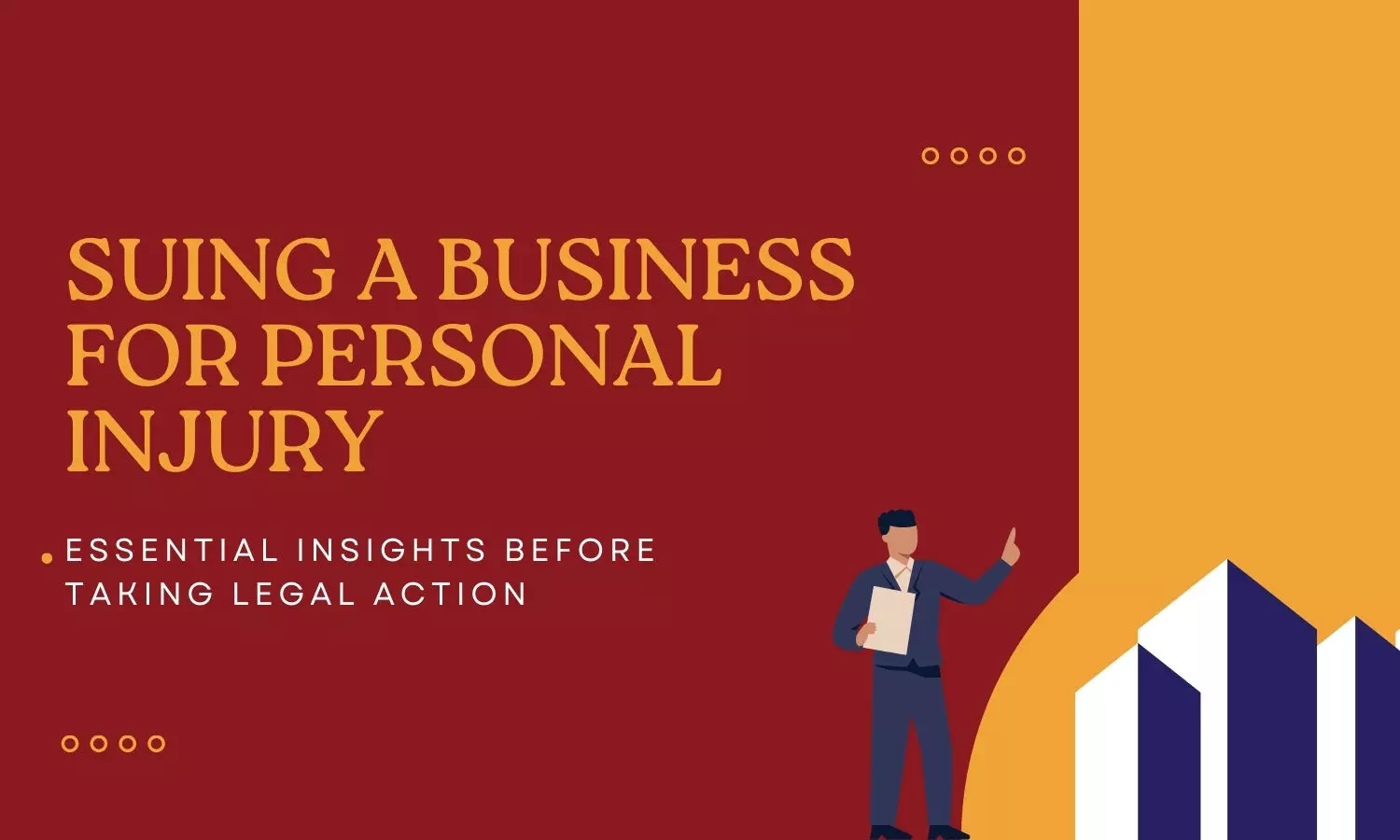Suing a Business for Personal Injury: Essential Insights before Taking Legal Action
Thinking of suing a business for negligence after an injury? Here’s what you need to know before taking legal action — scroll down to read more!

If you've suffered an injury on someone else's property or due to someone else's negligence, you may be considering filing a personal injury lawsuit.
With over 100 million lawsuits filed in U.S. courts annually and personal injury claims being some of the most common, suing a business for negligence resulting in harm seems straightforward. In fact, in 2020, personal injury and product liability lawsuits increased by 97% compared to the previous year, underscoring the prevalence of individuals seeking compensation for injuries. However, there are some key factors you need to consider before taking legal action against a company.
Filing a Claim
The first step is to file a claim with the business's insurance company. Provide details of when and how you were injured, the resulting damages, and copies of medical bills and records. The insurer will investigate and make a settlement offer if they agree the business is liable. If you reject their offer as too low, your next step is suing the company directly by filing a lawsuit with the help of a personal injury law firm.
Proving Liability
To win compensation in court, you must prove the business was negligent in a way that directly caused your injury. For example, a wet floor without warning signs, poor lighting leading to a fall, or a defective product that malfunctioned and caused harm. The more evidence you have to support your claim of negligence, the stronger your case. Witness statements and photographic evidence can help prove liability.
Statute of Limitations
There is a limited window to file a personal injury claim, known as the statute of limitations. This varies by state but is generally between one to six years. The clock starts ticking from the date of injury, so it's important to act quickly and not run out of time to sue for compensation. Consulting a personal injury attorney can ensure your claim isn't jeopardized by a statute of limitations.
Proving Damages
You must also provide evidence of financial losses stemming from the injury. This includes medical costs, lost income, pain and suffering, and estimated future costs of ongoing care. Medical reports, pay stubs, and expert testimony can help substantiate the monetary damages. With nearly a third of small businesses uninsured and 75% underinsured, obtaining adequate compensation may require taking legal action.
Company Size and Resources
The size and financial resources of the company being sued are also key considerations. Small businesses may not have extensive insurance coverage or the finances to pay major claim settlements. On the other hand, large corporations often have substantial resources and legal teams, making cases more challenging. For example, in 1998 Dow Corning agreed to pay $3.2 billion to settle a class-action lawsuit related to faulty breast implants.
Consult an Attorney
It's highly advisable to engage an experienced personal injury attorney if you plan to sue a business. An attorney can navigate the legal process, deal with the company's insurance provider, determine the best evidence to prove your claim, and advise whether settling out of court or taking the case to trial is preferable based on the situation. They will also take care of tricky procedures like filing motions, responding to discovery requests, and arranging expert testimony.
Suing a company for negligence takes time, effort and resources. Understanding these key factors can help you determine if legal action is your best path to obtaining compensation for your injuries. With the right approach and legal support, justice may be served.

